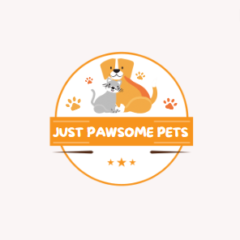Your Reactive Dog & Your Anxiety.
By admin / August 24, 2022 / No Comments / Pet Dogs
Anxiety is a burden in life for us humans, but is your anxiety affecting your dog too?
“Fear and anxiety will travel down the lead to your dog”?
Well, a lot of people as a consequence, believe that their anxiety is affecting their dog.
We know that vice versa is true. I mean, the vice versa part kind of stands for itself.
But, does it mean that your anxiety is making your dog’s anxiety worse?
It’s very easy conclusion to come to. You know you are, especially if you are a parent of a reactive dog, if you are walking outside and all of a sudden you become very tense and you are, you are on high alert and you are being hypervigilant for a dog that’s coming around the corner or, or something of that ilk.
The Viscious Circle of Anxiety
You can certainly feel like it’s becoming a vicious circle, especially with a reactive dog. I do wanna answer a question first, which is,
did I make my dog anxious with my own anxiety?
And I really want you to know that the answer to that is: No.
Okay?
Your dog is not ever going to learn, or at least I cannot, I’ve never seen it. And I cannot envisage a situation where your anxiety will impact your dog. And that you will make your dog anxious. That should never really happen. So please don’t think that you’ve done this to your dog because you almost certainly have not.
And if you did, you probably didn’t know you were doing it at the time. And these things are really, really, you know, we can’t blame ourselves for things that we have no control over or didn’t have better knowledge of.
Then it becomes, do I make my dog anxious when I’m walking?
that’s the next big question.
And the answer is: yes, you can.
You absolutely can make your dog anxious on a walk.
However, (there’s always a but isn’t there?), the likelihood is is that whilst you can make your dog anxious or put your dog into a state of anxiety on a walk, it’s likely. It’s certain that you were not originally the reason that your dog became anxious on their walk.
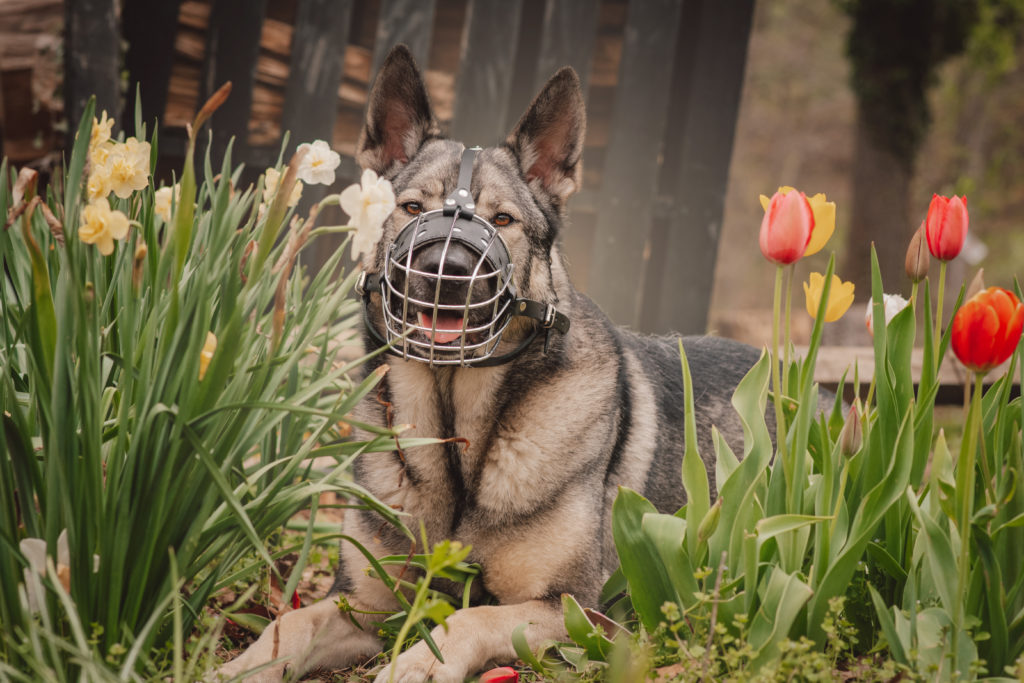
Introducing Hypothetical Fido
Hypothetical Fido is a “Perfectly normal” dog, who has been adjusted to everything in the whole wide world and will only respond and learn from their owner or guardian’s stimulus.
You and your anxious mind have gone for a walk with Hypothetical Fido in Perfect Park (where no loose lead dogs come over and every dog owner has control and manners). You can go out and that Hypothetical Fido will never, almost certainly not develop reactivity because of your anxiety or develop an anxious condition because of your anxiety.
What does that then lead us to believe it leads us to believe that if you do have a dog with an anxious disposition, that your dog who is learning every moment of every day is going out, and they are finding that when you act in a certain way, you predict the next step of their fear coming towards them.
So if, for example, you tighten up the lead every time you see a dog and your dog is a reactive dog. And they, they have already made the association that this a dog appearing equals bad things happen. If they’ve already made that association and then they make the association further that mom or dad tightens up the lead just before a dog, appears dogs have a very consequential learning pattern, so they will learn bad things are gonna happen when mom tightens up the leash.
Your tightening of the leash has become a predictor that a threat will appear.
Which is where the old adage of it travels down comes from.
However, obviously you don’t need a lead for that to become a consequential pattern. It can become a consequential pattern for anything. For example, if you, I had a client once who was in the habit of saying a certain word before a dog appeared or before their dog would notice the other dog.
And they were playing the engage disengage game (when you point a trigger out to your dog, they said that doesn’t work for my dog, and as they explained it and it actually became a thing that the dog was realizing that that word meant that a bad thing was coming AKA, the dog that they were scared of.
And consequently. They associated the game that was going to help them get through reactivity with worsening their, their reaction.
How Dogs Learn
Dogs learn, sequentially dogs learn in a very ABC pattern. And that means that the whole time that you are out with your dog, you have to be aware of what’s going on.
Okay. And I mean, we all know that, but. Just a reminder, your anxiety, if you are feeling in a particular way, will translate to your dog. If you give them the opportunity to learn that that happens time after time, same way that they learn that, you know, good means of rewards coming or that their name is a positive thing or that a crate is a place that they can go and relax.
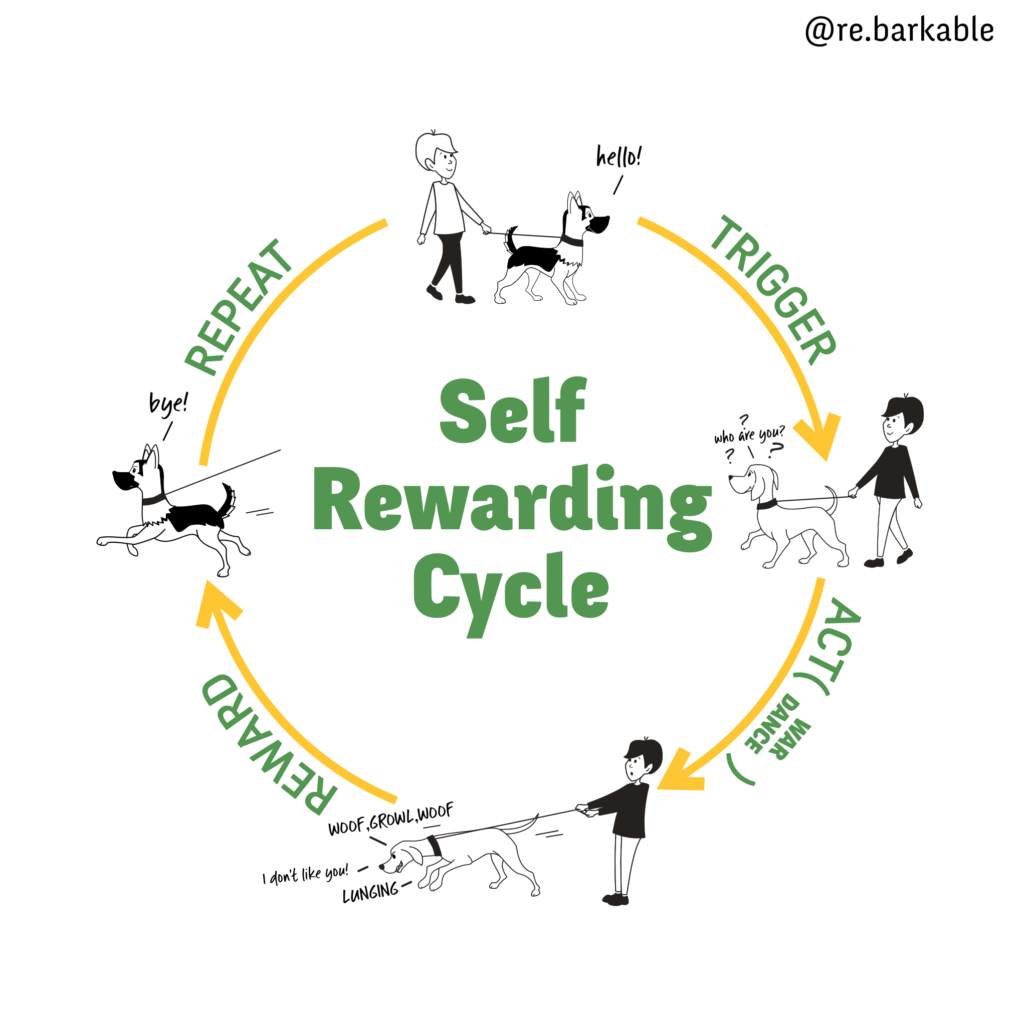
They, they make associations. And if you let that association happen, it will. Take effect. And that then is a very hard thing to undo because it’s our habits. Our habits are very hard to break. We are human and that is one of our most biggest, like our biggest faults. Right. So what can you do about this?
Tips To Remedy Your Anxiety When Walking Your Dog
1 – Routine
Firstly, you can create routine routine very much helps. I find because if you know that when you walk around your local park, ah, seven in the morning that you meet the, the black Newfoundland, you meet that golden retriever, you meet the mini poodle, you meet the cockapoo and they’re the dogs that you’re going to go past.
And you know, that they walk in a certain way will allow you as the human to predict what’s going to happen. It can give you the most control over your anxiety in order to not allow that to affect your dog. See where I’m going with this. It’s about controlling us before we can control the dog or your dog because the they’re very sensitive beings bless them and, you know, we wanna make sure that they’re learning as best they can.
And this is one of the ways that I certainly promote doing so. That routine, that element of routine mitigates, the unknown is kind of the thing. And if you can mitigate that unknown factor, then you can hopefully relax in yourself a little bit, because goodness only knows it’s not a very easy thing.
Is it to relax when you’ve already gone into that state of mind and imagine if that’s what it’s like for us, imagine what it’s like for them. It’s not easy is it?
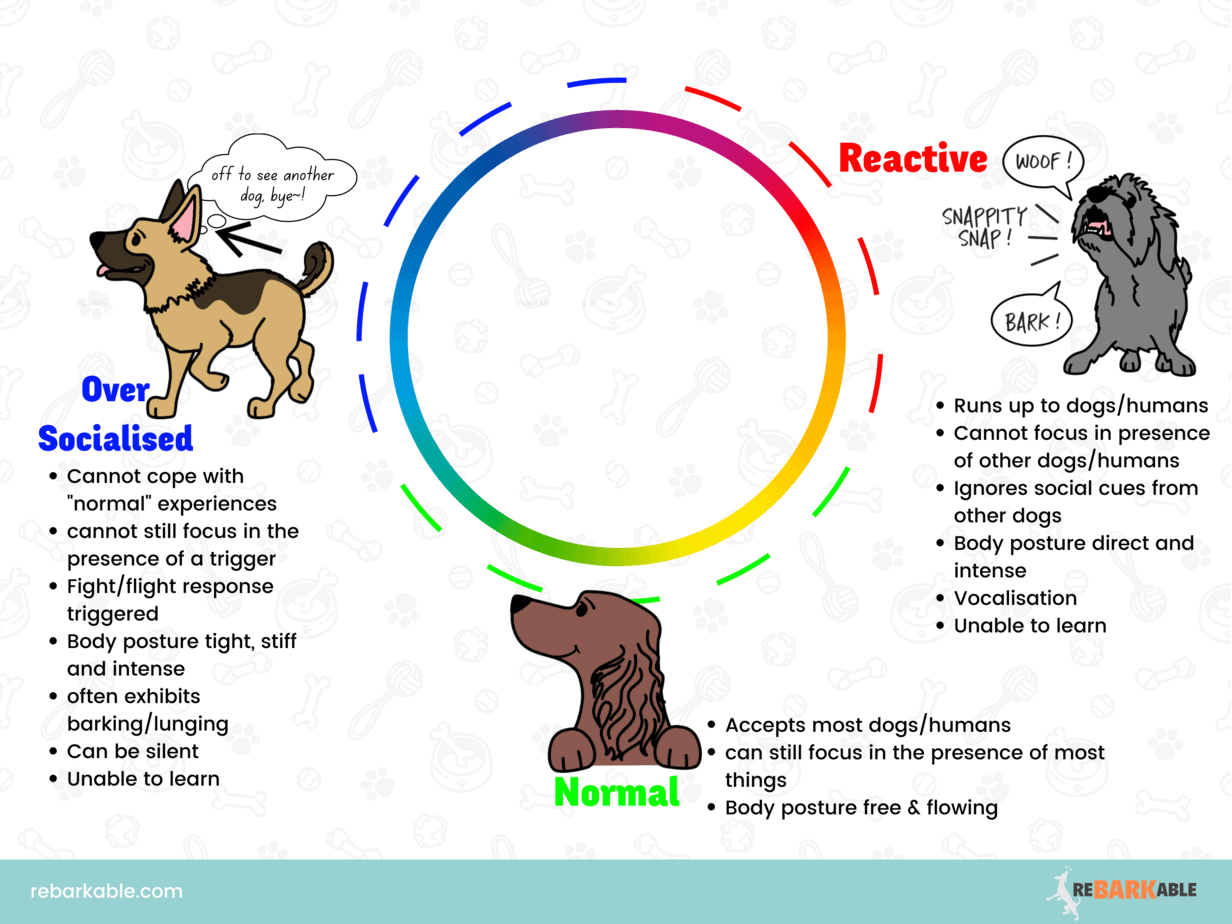
2 – Down Time
Then I wanna make sure that you focus on downtime. Downtime is a. It’s an imperative, essentially. You, you, for yourself and for your dog do not feel like, especially if you are anxious and if your dog is anxious, do not feel like you have to go for a walk every day.
Do not feel like you need to be entertaining them the whole time. Make sure that you are structuring in time to take a break, because even if that means that pup goes to daycare for a day, even if it means that you pay a dog walker to come in and walk them for an hour and just give you some downtime and step away from whatever it is, that’s, that’s causing you the stress, which might be your dog.
These things happen and these things are worthwhile. A little mental break for yourself is, is really important too, as well as for your dog. So then it’s important that, or I found it really useful to have relaxation exercises or like things where I would get my brain out of its little compulsive anxious circle craziness, because.
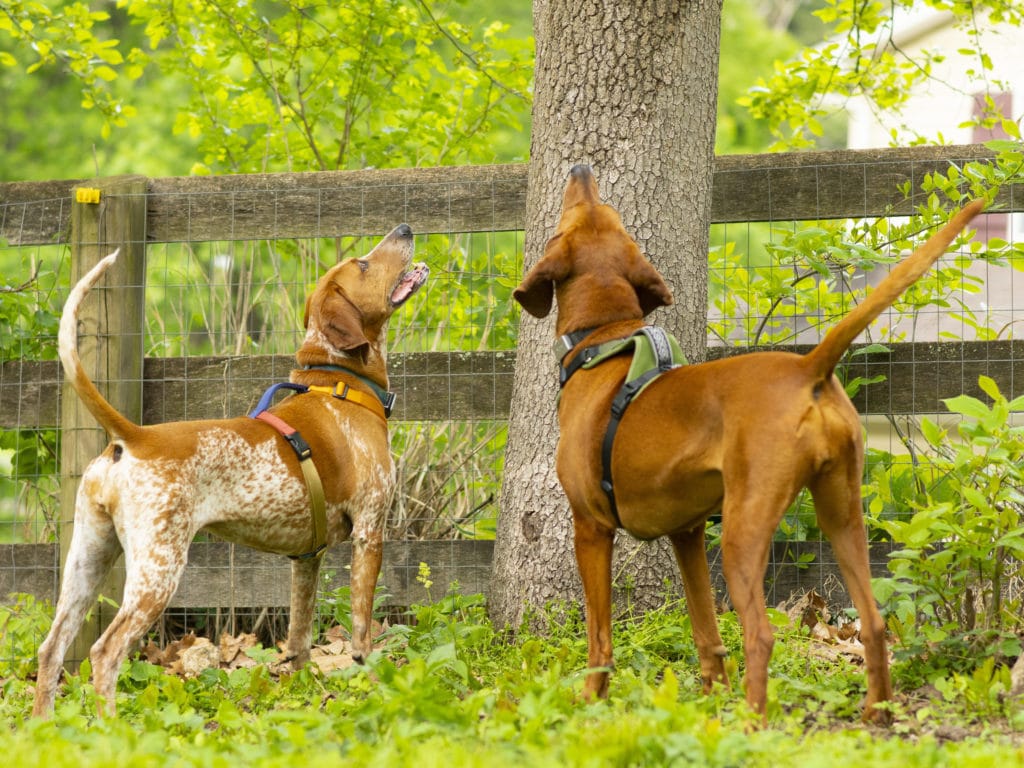
3 – Managing Your Anxiety
Certainly when I was going through the worst of Indie’s reactivity, I used to like beat myself up mentally and I would basically go into this wicked downward spiral of, oh God, I’m the worst dog parent in the world. How on earth can I have a 40 kilo dog who is this big and acts way? It’s totally not socially acceptable.
And can you tell that this is all stuff that was like really ingrained in that? Yeah, this is all stuff that I, I went through once, twice a day and I would punish myself for it. And. it’s really important in those moments that you can recognize that you are in that cycle.
I mean, please don’t get me wrong. I’m not a psychologist.
But I know what I went through that you can recognize that you are in that cycle and find a way to break it, because if you can find that way to break it, then you can. You can pull yourself out of it effectively. Okay. And that, that, that little pullout like of that little anxious, crazy anxious moment is really important.
And some of the ways that my therapist taught me to do this years ago was to name, everything that I could think of in my head that was blue sounds really stupid, but it works.
Another exercise that I’ve done since is It sounds a little silly, but it is true. And this is what I do. I have like a mental space? It’s just a room essentially that I essentially craft the outside of the rooms, the floor. And I will think about what’s going on. And then. Mentally, I will literally like grab a mental broom. It’s literally just a picture of a broom in my head. It’s an old fashioned one with the straw. If you wanna get really detailed and I will literally sweep away every thought that I that’s going through my head and it gets swept away and it’s gone and it sounds really stupid, but it works for me.
Okay. Yeah. So sometimes these things are very personal and sometimes these things are. Essentially just a thin that’s gonna get you through it. Find yourself a little something that can pull you out of that cycle because that, that mental cycle just, it’s not good, is it?

4 – Seek Medical Advice If Necessary!
I’ve certainly been there, but if you need to involve a medical professional, counsellor or something else in that window – do it. Because your mental health is super important.
The last one, this is really, really important is….
4 – Allow Yourself to make mistakes
you need to allow yourself to make mistakes because you are human, just like me. And you are going to make mistakes and that is a normal and realistic part of life. Let alone training your dog.
Okay. And your dog is not going to regress to the point of being totally inconsolable or unfixable because you’ve made a mistake. Okay. Please hear that. So I’ll say it again. Your dog is not going to become irreparable because you have made a mistake. All right. There is always a way to get through things.
There is always a way to go forwards and sometimes, sometimes that way to go forward might be involving someone like me. Okay. And this is not an advert. It’s not away for me to sell to you because that’s not why I’m here. I wanna help you guys. And, but you do need to know. One mistake, two mistakes, two mistakes.
Aren’t gonna break your dog. Okay? There’s always a way through, it’s just about finding it. And if you can’t afford someone like me, if you can’t afford another trainer, I don’t know. Then. There are resources on the internet. And my blog is literally full of them because I’ve been in your shoes. I got made redundant just as Indie developed his reactivity.
And goodness only knows there was not a penny in my bank account. I could barely afford to feed the pair of us, let alone train him. And. It took me a whole bunch of studying for me to get where I needed to go. And then I ended up becoming a trainer because I loved it. And yeah, essentially, I want you to be kind to yourselves on that one and if you can’t afford it, use all the resources.
Anxiety Sucks with an Anxious Dog – but you can do it.
And if you need like pointing in directions, I’m always happy to point you in directions. I do also have a very low cost course coming out for reactive dogs. It’s more than a cost because it’s a group as well. It’s a very social thing. So if you do wanna join in, come join in. Email me and I will send you all the information that you need to know.
Sign up for Rebarkable Reactives and get the learning and support you need to succeed with your reactive dog!
Author, Ali Smith
Ali Smith is the Positive Puppy Expert, dog trainer and is the founder of Rebarkable. She is passionate about helping puppy parents get things right, right from the start. To help create a puppy capable of being a confident and adaptable family member and keep puppies out of shelters.
Ali has won multiple awards for her dog training, and has had her blog (this blog!) rated as 2021 & 2022 worlds’ best pet blog!
Link to originalRebarkable
